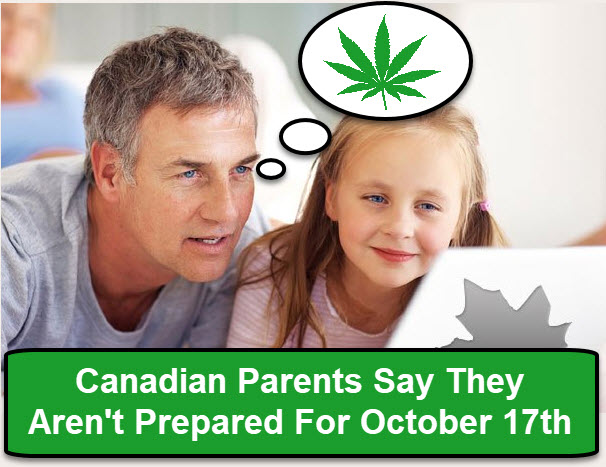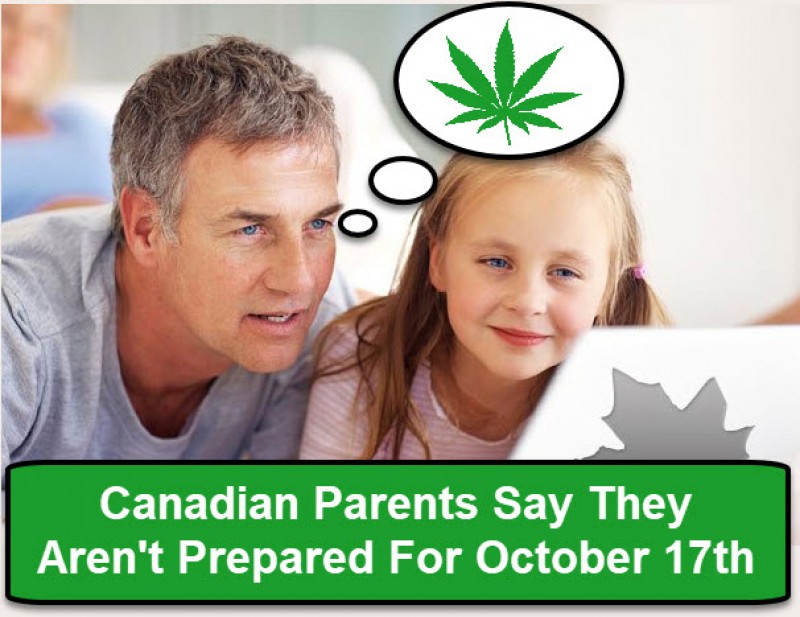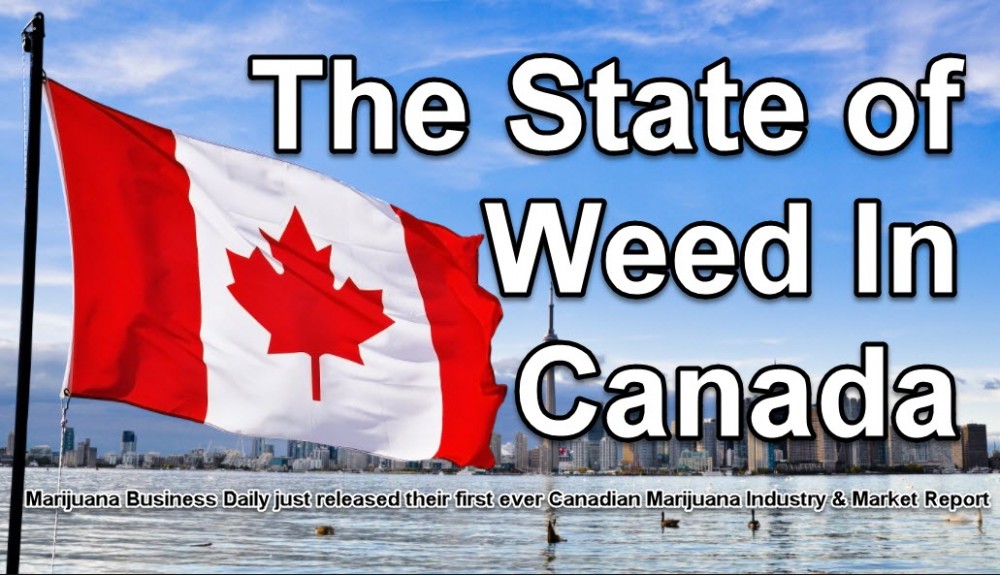Canadian Parents Say They Aren’t Prepared For October 17

Parents have the tough job of initiating many uncomfortable discussions with their children. There’s the birds and the bees talks, the don’t drink and drive talks, and now there’s the marijuana talks.
In Canada, where recreational weed will be legal this fall, less than two months away, parents still don’t feel equipped to talk to their kids about pot. A new survey reveals that only 30% of the 1,000 Canadian parents polled, admit to feeling “very prepared” when it comes to educating their children about cannabis. The respondents all have children below 18 years of age, and were surveyed from June 26 to July 9 this year. Over half of the respondents say that they don’t have adequate resources for educating their kids about the possible risks of pot.
“As we move toward the legalization of cannabis, it’s important that we take pulse checks along the way,” says Organigram chief commercial officer Ray Gracewood. Organigram, a medical cannabis company, commissioned the poll. “If the safety of youth is a priority of legalization, this discussion is critical.”
It seemed that the parents were more worried about their kids not knowing enough about the harms of driving while stoned, as revealed by 87% of the respondents. Meanwhile, 75% were concerned about the negative effects of cannabis on the body, 75% were worried about how their kids should properly turn down pot, and 74% were troubled about the risks of mixing drugs and alcohol. The parents also said that they wanted more resources for themselves so that they can identify the differences between various forms of pot such as smoking versus edibles, and needed more information about cannabis potentially leading to tobacco use or harder drugs.
“I would encourage parents to seek information on the risks and realities from a credible source, like a physician or health authority, and start having those conversations now,” says Dr. Michael Verbora, chief medical officer of Aleafia Total Health. “Knowledge is power and will be key to proactive, open dialogue in Canadian homes. Frank discussion and well-informed families will help protect youth in this new era of cannabis legalization,” Verbora said in the study’s press release.
Two out of three parents believe that health care professionals and physicians are the most reliable resource for information when it comes to helping educate kids about cannabis and its uses. Regionally, parents located in Atlantic Canada were found to be most supportive of legalization and feel the most prepared in educating their kids about pot, while parents in Quebec are more likely to reject legalization and feel unqualified to talk to their kids about pot.
In most provinces in the country, the legal age for purchasing pot is set at 19, while Quebec and Alberta have set it to 18. The Canadian Paediatric Society (CPS) is encouraging policy makers to limit kids’ access to cannabis, referring to possible mental and physical issues that may occur later on. In a 2017 position statement, the CPS says: “The developing brain is especially sensitive to the negative consequences of cannabis use.”
“Canadian youth are at significant risk for developing Cannabis Use Disorder and, possibly, for doubling their risk of having a psychotic mental illness. Driving under the influence of cannabis increases the risk for motor vehicle accidents.”
CPS added that edibles may also appeal to teenagers who are curious about smoking pot, and voice the concern that toxicity from edibles may occur because the absorption process takes much longer. “Youth should not use cannabis recreationally because its many potentially harmful effects are serious,” CPS says.
Organigram is supporting efforts aimed at educating the youth about cannabis. They are participating in harm reduction initiatives including those developed by the government of New Brunswick, as well as Mount Allison University. Organigram says that they hope the data from this survey can spark discussions within Canadian families so that the youth are educated about cannabis before and after legalization.
“The most important goal of cannabis legalization is the protection of Canadian youth,” says Organigram CEO Greg Engel. “As a company, we will continue to support the education of Canadians about cannabis and will continue to collaborate with those on the front lines of this discussion.”
Whether in Canada or anywhere else, there is a need for healthy and open discussions about cannabis because this is part of the work necessary to remove the stigma that has been associated with it for so long now. Hopefully, parents will learn to veer away from traditional talks that emphasize abstinence and focus on education.
OTHER STORIES YOU MAY ENJOY..
CANADIAN RECREATIONAL CANNABIS APPROVED, CLICK HERE.







